Great Lakes PGPM & PGDM 2025
ApplyAdmissions Open | Globally Recognized by AACSB (US) & AMBA (UK) | 17.3 LPA Avg. CTC for PGPM 2024 | Application Deadline: 1st Dec 2024
Dear Aspirant,
For ILS seats, the cut off is same as that of general category cut off. So it is difficult to predict the cut off. Also the college don't release the ILS cut off as such. The general category cut off for Chetna, MET, IES is around 98 percentile. So, the chances for you are quite difficult.
Hope this helps
Hello aspirant
Indian Engineering Services vacancies for Mechanical Engineering from Scheduled Tribe ( ST) category are , 2 seats as per 2018 review.
For 2020 in all 495 vacancies are there in mechanical engineering , IES, out of which 21 seats are reserved for PWD category and 2 seats for St category
Dear Aspirant,
The number of seats in ESE(formerly IES) vary every year. For instance, in 2014, total number of vacancies (all branches) were 572, in 2015 it got reduced to 475, and in 2016 it increased to 602. Number of seats are subject to vacancies in various central government departments.
Generally the seats are between 500-600 so it is not possible to say how many officers are there per state.
Hope this helps, thank you.
ISRO mein kaam karne ke 2 tareeke hain. Ek toh ap IIST mein join hoke B.Tech padna hain. Aur IIST mein admissions JEE Advanced ke dwaara hoga. Toh aapko Physics aur Mathematics zaroori subjects honge. Aur doosre tareekha hain B.Sc Physics ke dwaara Technical Assistant ke quailfication pe jaane ka. Lekin uskke liye bhi aapko Physics zaroori subject hai.
BARC mein GATE scores ke dwaara admissions hote hain. Isko bhi Physics, Chemistry aur Mathematics ke subjects zaroori hain
IES exam ka eligibility hain Engineering degree. Isko bhi Physics, Chemistry aur Mathematics zaroori hain.
Lekin aap agar lateral entry se padre toh aapka B.Tech qualification consider karenge aur aap ye teeno exas ko apne B.Tech qualification se qualify ho jaate hain. Apko ISRO ke liye B.Tech ke baad M.Tech ke liye IIST mein hona padega. Hindi humara first langugae nahin hain. Isliye agar koi doubts hain toh comment section mein likhlijye.
Hi
Yes, you will be eligible to give the IES exam. The exam guidelines only state that you would need to have a valid B.Tech degree, from a foreign or Indian recognised Institute. Additionally, there is also no minimum percentage of marks in B.Tech set by UPSC.
HI
Gate electric engineering syllabus can be found using the following link, https://engineering.careers360.com/articles/gate-syllabus#GATE-2021-Syllabus-
In the syllabus column corresponding to electrical engineering, click the hyperlink, and you will be able to download a pdf of the syllabus.
For IES, the syllabus for paper -1 is
1. Engineering Mathematics: Matrix theory, Eigen values & Eigen vectors, system of linear equations, Numerical methods for solution of non-linear algebraic equations and differential equations, integral calculus, partial derivatives, maxima and minima, Line, Surface and Volume Integrals. Fourier series, linear, non-linear and partial differential equations, initial and boundary value problems, complex variables, Taylor’s and Laurent’s series, residue theorem, probability and statistics fundamentals, Sampling theorem, random variables, Normal and Poisson distributions, correlation and regression analysis.
2. Electrical Materials: Electrical Engineering Materials, crystal structures and defects, ceramic materials, insulating materials, magnetic materials – basics, properties and applications; ferrities, ferro-magnetic materials and components; basics of solid state physics, conductors; Photo-conductivity; Basics of Nano materials and Superconductors.
3. Electric Circuits and Fields: Circuit elements, network graph, KCL, KVL, Node and Mesh analysis, ideal current and voltage sources, Thevenin’s, Norton’s, Superposition and Maximum Power Transfer theorems, transient response of DC and AC networks, Sinusoidal steady state analysis, basic filter concepts, two-port networks, three phase circuits, Magnetically coupled circuits, Gauss Theorem, electric field and potential due to point, line, plane and spherical charge distributions, Ampere’s and Biot-Savart’s laws; inductance, dielectrics, capacitance; Maxwell’s equations.
4. Electrical and Electronic Measurements: Principles of measurement, accuracy, precision and standards; Bridges and potentiometers; moving coil, moving iron, dynamometer and induction type instruments, measurement of voltage, current, power, energy and power factor, instrument transformers, digital voltmeters and multi-meters, phase, time and frequency measurement, Q-meters, oscilloscopes, potentiometric recorders, error analysis, Basics of sensors, Transducers, basics of data acquisition systems
5. Computer Fundamentals: Number systems, Boolean algebra, arithmetic functions, Basic Architecture, Central Processing Unit, I/O and Memory Organisation; peripheral devices, data represenation and programming, basics of Operating system and networking, virtual memory, file systems; Elements of programming languages, typical examples.
6. Basic Electronics Engineering: Basics of Semiconductor diodes and transistors and characteristics, Junction and field effect transistors (BJT, FET and MOSFETS), different types of transistor amplifiers, equivalent circuits and frequency response; oscillators and other circuits, feedback amplifiers
Dear Aspirant,
The cut off for PGDM for MET and IES is mostly around 80 percentile. If the seats are not filled it that cases the cut off goes down. But only till 75 percentile as per last record
You can apply for PGDM for other colleges which accept this percentile.
Hope this helps
Hello aspirant,
If you are looking for admission in Finance specialization for management program, then I'll recommend you to join IES Mumbai over MET and Chetna. Both MET and Chetna are good for marketing specialization. IES mumbai has an average placement package of 5.85 lakhs. The top companies visiting the campus are HDFC Bank, ICICI Bank, CapGemini, Ugam Solutions, Reliance Retail and ITC Hotels. A percentile above 90 in cet is a safe percentile to get into the college.
Good Luck
Hey there
In order to become an IES officer you need to clear an entrance exam called UPSC ESE exam. It has three steps prelims, mains, and interview. You need to clear all the stages and then you'll be selected. Check the link for detailed information regarding ESE preparation
Good luck
College has all the necessary facilities and equipments. We have Library, free wifi , ccd , game room , the washroom are also hygiene and is being cleaned daily, the space there is also clean so overall everything is good.
IES college infrastructure is very good. All Classrooms are AC. Also AC Library, AC Computer lab, AC Gaming Room, AC reading room available in college. All benches are very well, they get relaxation to body.
Hello everyone, i am Akash Pawar an student of IES,MCRC. The college boasts excellent infrastructure with all essential facilities readily available. The college bas specious well ventilated air conditioned library with numerous books. All classrooms are air conditioned. There is a nice bloomberg lab and cafe coffee day inside the building. Overall infrastructure is excellent.
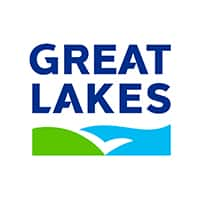
Admissions Open | Globally Recognized by AACSB (US) & AMBA (UK) | 17.3 LPA Avg. CTC for PGPM 2024 | Application Deadline: 1st Dec 2024
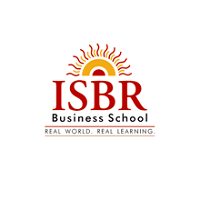
180+ Companies | Highest CTC 15 LPA | Average CTC 7.5 LPA | Ranked as Platinum Institute by AICTE for 6 years in a row | Awarded Best Business School of the Year
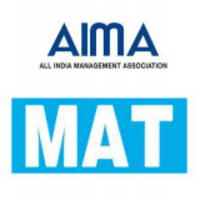
Passport to over 600+ B-Schools | Availed by lakhs of students | Wide acceptability of scores by hundreds of Business Schools and University Departments
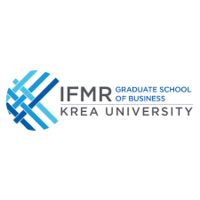
UGC Approved Programs | 100% Placement Record | Up to 100% Scholarships | Highest CTC 21.74 LPA
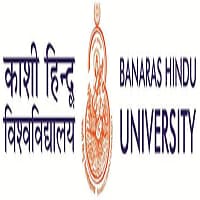
Ranked 05th best University in India by NIRF 2024 | Highest CTC 35 LPA | Average CTC 11.4 LPA

9 IBS Campuses | Scholarships Worth Rs 10 CR